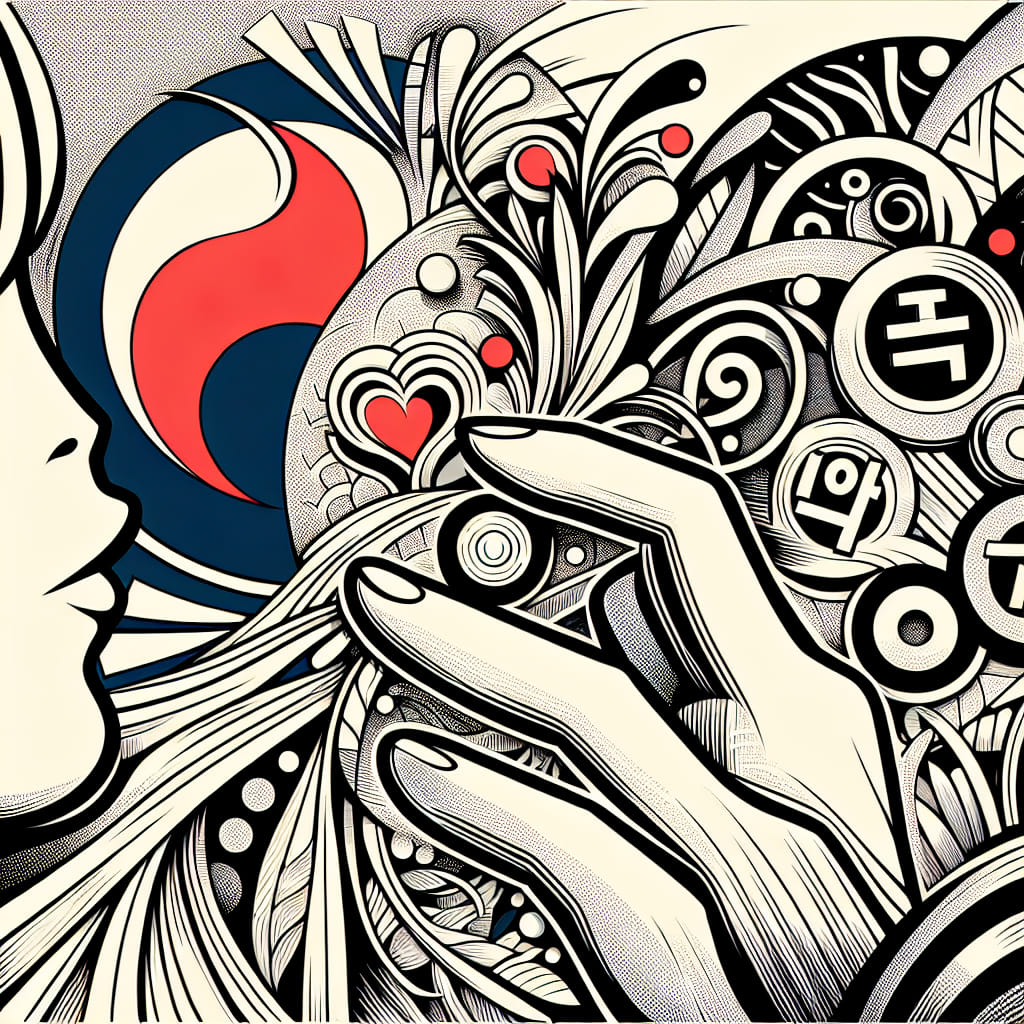· word of the day · 4 min read
Explore Unique Korean Words: Enhance Your Language Skills and Cultural Insight
Explore the depth of Korean language and culture by learning unique words like Han which unveil the emotional and historical essence of Korea enriching your language learning journey.

Unlock the Hidden Gems of Korean: Discovering Unusual Words
When diving into a new language, there’s often a rush to master the basics—greetings, common phrases, and essential grammar. However, the true beauty of language learning lies not just in the ability to communicate but in uncovering the unique cultural nuances embedded within unusual words. For learners of Korean, exploring these gems can provide not only a deeper understanding of the language but also a richer insight into the culture and thought processes of its speakers.
Introducing “Han” (한)
One such fascinating word in the Korean language is “Han” (한). Pronounced as [han], this word doesn’t have a direct translation in English, which makes it all the more intriguing. “Han” is a uniquely Korean concept, often described as a blend of deep sorrow, a sense of regret, or unavenged injustice mixed with a stoic endurance of suffering.
Cultural Significance
“Han” is deeply embedded in the Korean psyche, shaped by centuries of hardship and suffering, from invasions and colonization to internal strife and division. It reflects a collective emotional baggage carried through generations—a sorrow that is both personal and deeply communal. Understanding “Han” offers a glimpse into the Korean soul, revealing how historical and social circumstances have shaped the national character.
Examples in Use
To see “Han” in context, consider these examples:
- In literature: “그녀의 눈빛에서 한이 느껴졌다.” (In her eyes, there was a sense of ‘Han’.)
- In everyday conversation: “우리 할머니는 한이 많으셔.” (My grandmother has a lot of ‘Han’.)
These examples show how “Han” is used to express a complex mix of emotions, often related to personal or historical grief.
Idiomatic Expressions and Sayings
“Han” is not just a word but a cultural concept, often reflected in various idiomatic expressions and sayings. For instance, the phrase “한을 품다” (to resolve Han) illustrates the desire to overcome this deep-seated sorrow, whether through reconciliation, achieving justice, or personal healing. This expression is commonly used in both literature and films, providing a narrative arc of resolution and emotional catharsis.
Role in Literature and Folklore
In Korean literature, “Han” is a recurring theme, often portrayed through characters that endure great hardships. Classic novels and modern works alike delve into characters’ “Han,” exploring their inner worlds and the societal issues that contribute to this emotional state. Similarly, in Korean folklore, tales often revolve around underdog characters who face great adversities, embodying the spirit of “Han” as they navigate their trials.
Poetry also serves as a profound medium for expressing “Han.” Poets like Yun Dong-ju and Kim Sowol have encapsulated the essence of “Han” in their works, using the language to convey both personal and collective grief and resilience.
Enriching Language Learning and Cultural Understanding
For language learners, delving into words like “Han” can dramatically enrich the learning experience. It opens up a layer of cultural understanding that goes beyond what can be communicated through direct translation. By exploring how “Han” influences Korean thought, art, and daily life, learners can gain insights into the emotional and psychological landscape of Korea.
Moreover, understanding “Han” can enhance one’s ability to appreciate the subtleties in Korean language and expressions. It adds depth to the interpretation of texts, conversations, and media, allowing learners to connect more profoundly with the language and its speakers.
Conclusion
Exploring unique words such as “Han” not only broadens one’s vocabulary but also deepens one’s engagement with the cultural and historical contexts that shape a language. For learners of Korean, embracing these unusual words can transform routine language acquisition into a more meaningful and insightful journey.
To further your journey in learning Korean and uncover more fascinating aspects of the language, consider using resources like Glosa, which can provide you with tools and insights to deepen your understanding and appreciation of Korean culture and language.
Learning a language is more than memorizing grammar and vocabulary—it’s about connecting with the culture and history that the language represents. By embracing words like “Han,” learners can enjoy a richer, more nuanced understanding of Korean and its speakers.




